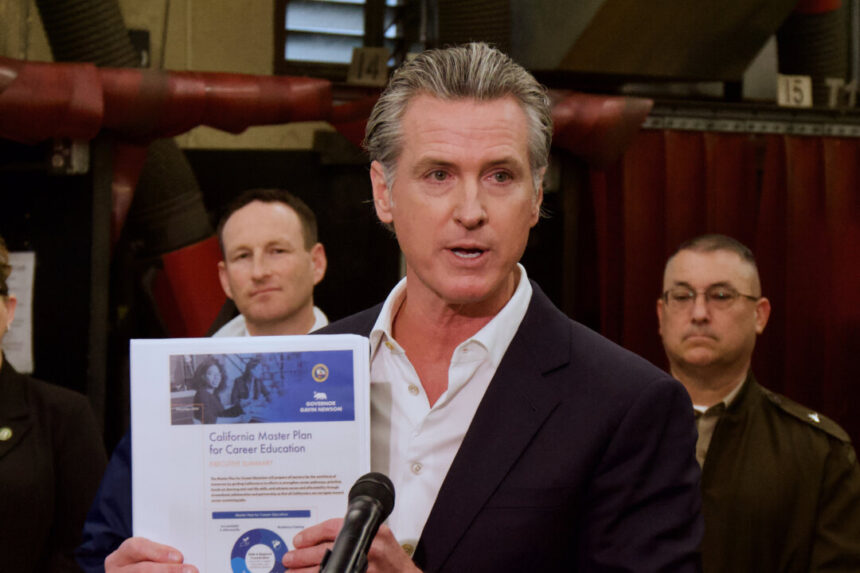State officials in Redding, California have introduced new workforce development programs that include “career passports” to track the skills of Californians acquired through military service, volunteering, or work. These passports aim to help employers evaluate candidates and identify suitable employees, according to California Governor Gavin Newsom. The plan also allows veterans, active-duty military, and other workers to convert their experiences into college credits statewide, benefiting around 30,000 service members. This initiative is estimated to save veterans an average of over $26,000 each, with lifetime benefits totaling approximately $160,000. Over the next 20 years, the plan is expected to generate nearly $29 billion in benefits for California’s economy. The goal is to enable around 250,000 Californians to apply their experiences to reduce the number of credit hours required for graduation. The plan aligns with the state’s Master Plan for Career Education, emphasizing the use of life-learned skills to facilitate college graduation and career advancement for individuals without degrees. Additionally, the plan aims to increase the number of participants completing apprenticeships to 500,000 by 2029, with over $221 million invested in related programs in the previous fiscal year. Governor Newsom had previously signed an executive order in August 2023 to eliminate the college degree requirement for 32,000 state job positions, with about 30,000 state jobs no longer necessitating four-year degrees. Local stakeholders, including Shasta College administrators, have expressed enthusiasm for the plan, believing that the region will greatly benefit from these career pathways programs. On September 16, 2024, Billy Miller, the dean of extended education and North State Together at Shasta College, expressed his belief in the potential for collaboration to navigate opportunities and address complex challenges for the benefit of students. His remarks were made during a press conference attended by Governor Newsom, who visited Shasta County as part of his “Jobs First Tour” following visits to Fresno, Kern, and Colusa counties in the Central Valley.
As part of the tour, economic regions across the state were allocated $5 million each to develop economic plans. These regions are currently preparing documents to be compiled into a comprehensive statewide strategy in early 2025. Additionally, each region received $14 million to kickstart the development of specific projects, with $120 million in competitive grants set to be awarded in 2025. Applications for these grants will be accepted starting January 1.
The governor’s office is overseeing the implementation of these initiatives, which aim to boost economic development and address challenges faced by communities across California. Stay tuned for further updates on the progress of these projects.
Original article by Travis Gillmore/The Epoch Times.
Source link




